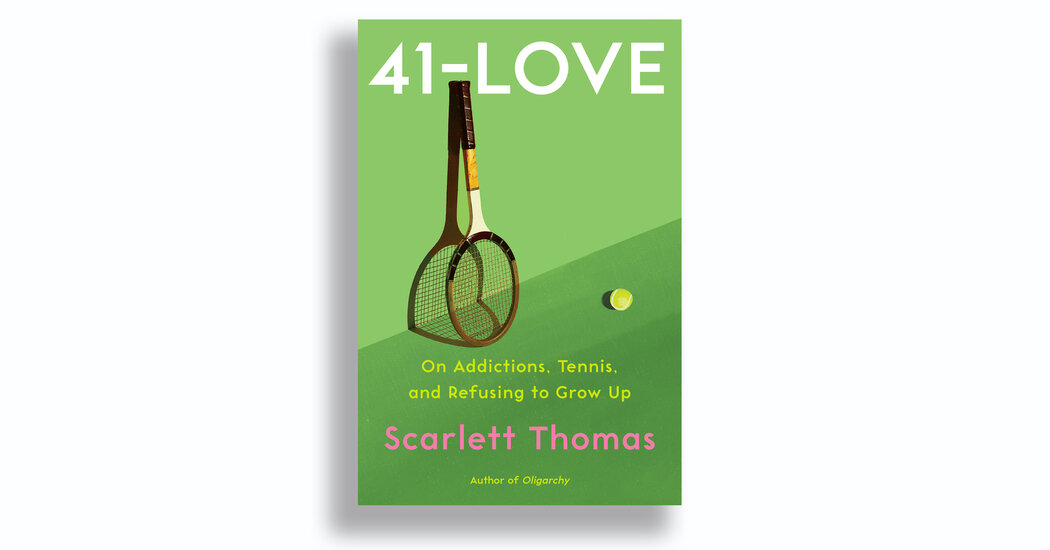
When she turned 41 in 2013, the English novelist Scarlett Thomas returned to playing tennis for the first time since she was a talented 14-year-old. At the start she believed it was simply an effort to be more active and to meet people. “But I’d forgotten how competitive I am,” she writes, “and how much I want to win.” The elation she felt after winning a local amateur tournament soon turned to something more like obsession, and she began to worry about the game’s impact on her mental health. In “41-Love,” she writes, often with dark humor, about her experiences with the game. The memoir also covers many other subjects, including “Dirty Dancing,” the ostensible freedom of travel, teaching creative writing and the body versus the mind. Below, Thomas talks about wanting to write a “Rocky” story, playing a seniors event at Wimbledon and more.
When did you first get the idea to write this book?
I sort of had the idea just after I’d won my first and only tennis tournament, and the idea of writing was basically the excuse to continue playing tennis. How can I spend a lot of time and money on this hobby? I’ll do that thing that people do; they do something for a year and write a book about it. They always start off like they’re not sure they can do it, and then they try it and it goes badly, and then they end up a winner. I wanted that narrative for myself. And I thought: What can go wrong? It was this tiny tournament in a local leisure center, and it was so improbable that I would win. And I wanted it too much, and then addiction kicked in.
I thought, “I’ll have to see how far I can get in the local tennis rankings.” Then I realized you could enter tournaments based on your age group. As a 40-plus woman, I was in a really small minority, so then I realized I could see how far I could get in the national and international rankings. I got to No. 6 in the U.K., and whenever I tell people that they’re really impressed, and I have to tell them, “Well, someone else sprained their ankle,” and “Someone else almost died.”
What’s the most surprising thing you learned while writing it?
Literally everything about this book was surprising. I was so deluded and stupid, and weirdly unworldly, when I set out on this project. I’ve never been exactly diagnosed with anything, but I am the kind of person where I read a set of instructions and think, “You do steps 1 through 5 and get outcome number 6.” I didn’t know you could overtrain. I didn’t know that six hours playing tennis every day might be too much if you’re trying to have a relationship and have a job and you’re 41. First I was surprised by how stupid I was, and then I was surprised by how many other people were just as stupid. I thought I was unique and I was the only person — and it’s true, not that many women over 40 did this — but all of them were just like me, only better at tennis. I thought it was weird to have a coach and spend money on training, and then I met women who took it even more seriously than I did. I wasn’t that bad; why was I the one who crashed and burned? Everything was a surprise.




